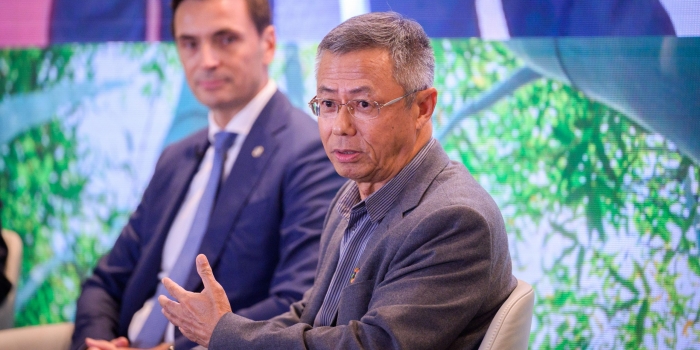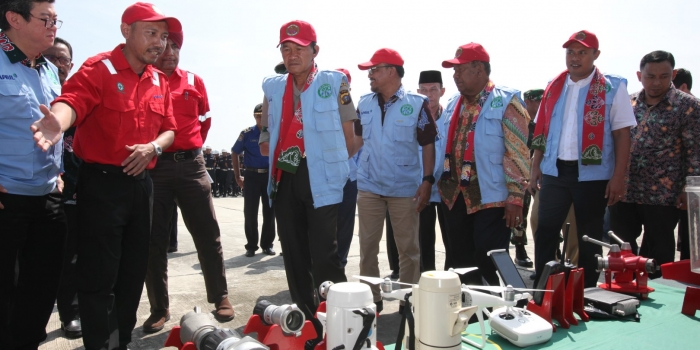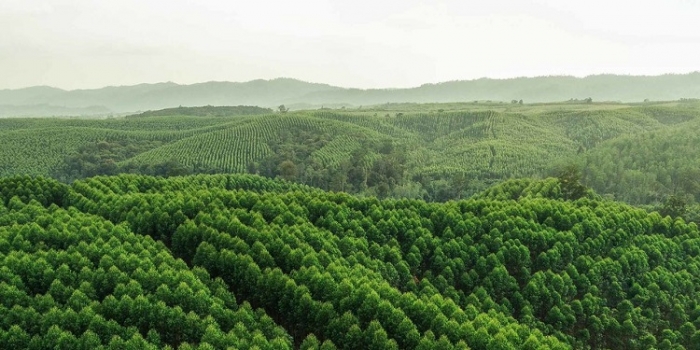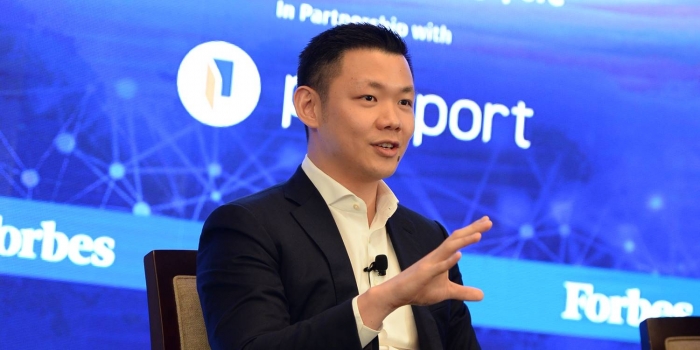Investors have an active role to play in supporting the private sector’s efforts in building a greener future for all, which means moving from an economy that is W.I.L.D. – wasteful, idle, lopsided, and dirty – to one that is circular, lean, inclusive, and clean.
This was the central point of a robust panel discussion, titled ‘People, Planet, Profit: How to Build Sustainable Portfolios’, at the Lombard Odier Asia Summit on 7 September 2022. Bey Soo Khiang, Vice-Chairman, RGE, highlighted the value of investing in sustainability and how RGE’s efforts in driving green innovations have made a positive impact on communities and the environment.
Businesses need to strive for sustainable growth to stay relevant. “Companies need to know where they are going, what they are doing, and what they should be doing,” Mr. Bey said, stressing the importance of accountability.
Mr. Bey also spoke about how RGE business group APRIL has committed to deliver a positive impact on climate, nature and people through clear, measurable targets. Through its APRIL2030 targets and commitment, APRIL aims to achieve net zero carbon emissions from land use, positive measurable gains from nature and to drive inclusive progress by eliminating zero extreme poverty and widening access to quality education. APRIL is also aiming for sustainable growth through circularity and responsible action, including waste elimination and carbon footprint reduction, he said.
Moderated by Sharanjit Leyl, other speakers at the panel discussion included Jacob Duer, President & Chief Executive Officer, Alliance to End Plastic, who shared insights about new solutions to address climate challenges, while Stéphane Monier, Group Managing Director & Chief Investment Officer, Bank Lombard Odier & Co Ltd, and Dr. Thomas Hohne-Sparboth, Head of Sustainability Research, Lombard Odier Group, shared observations on investing in sustainability.
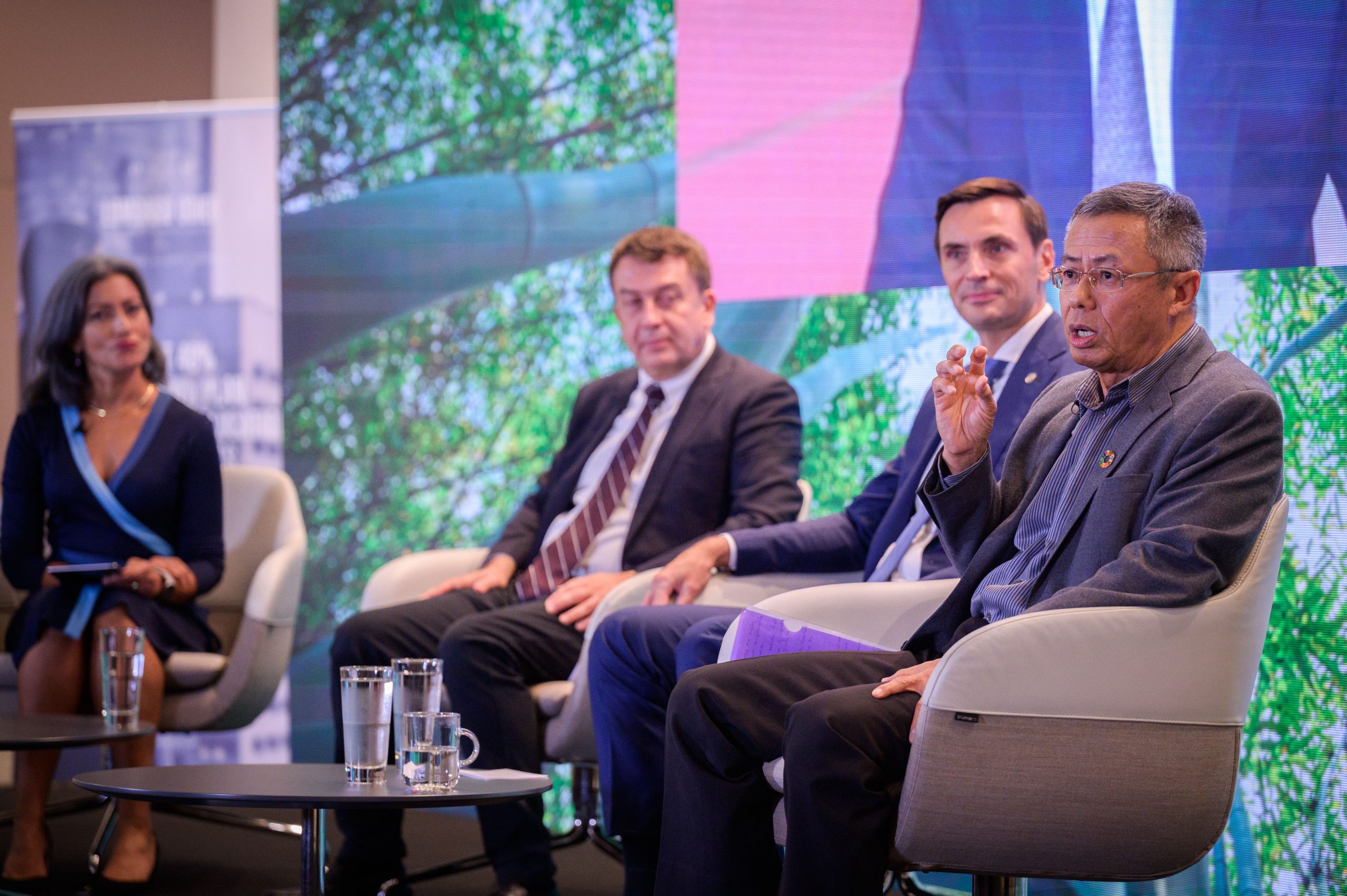
Bey Soo Khiang, Vice-Chairman, RGE (right), speaking at the Lombard Odier Asia Summit in Singapore
Look at the company, not the sector
From an ESG investment perspective, it is important to keep up with the scale, pace and complexity of transition. To uncover more value and opportunities, the panelists called for a more enabling environment via a stronger partnership within the ecosystem and to ensure innovation, technology, industries, investors and regulators work together.
Mr. Bey encouraged investors to evaluate each company based on its merits, rather than the industry in which it operates. He added: “If you treat all companies in the same industry in the same stroke, you are not encouraging the bad ones to move towards being better. I hope investors can bear this in mind in their assessment of where to invest.”
Echoing Mr. Bey’s perspective, Mr. Monier highlighted the importance of investing in scientific capabilities to examine each individual company. “Two companies in the same sector can have very different practices,” he said.
Dr. Hohne-Sparboth added that investors should not only look at the ambitions of forward-looking companies. It is equally important to assess the credibility of their commitments.
Addressing the topic of greenwashing, Mr. Bey spoke about the need for increased transparency. In addition to evidenced-based reporting against clearly-defined, “down to ground” metrics, APRIL also benefits from the external expertise of its independent Stakeholder Advisory Committee, which holds the company accountable for its business practices and performance, he said.
Highlighting the cost of tracking and monitoring RGE’s aggressive sustainability targets, Mr. Bey said: “It is not cheap. I always say there’s a cost for doing it, but there is also a cost for not doing it. It is about doing the right thing”. He highlighted APRIL’s US$4 million investment to install four greenhouse gas measurement towers to track carbon dioxide emission and sequestration.
Create change together
To race to net-zero, Mr. Duer encouraged an environment where learnings can happen and new solutions can be created, along with action and change on the ground.
Adding to to this point, Mr. Bey spoke about RGE’s partnerships with Nanyang Technological University and the Textile and Fashion Federation to advance research and innovation with circular economy approaches to fashion waste in Asia. The partnerships aim to encourage key players in the industry, including the designers, manufacturers, and retailers to “design recyclability right from day one”.
Wrapping up the discussion, Mr Bey said, “As a company, the train has left the station. We will continue to contribute to climate change (mitigation). Going forward, it would help a lot if investors invest in the right type of companies, to give the industry an extra push for all players to continue with their trajectory towards a more climate-friendly environment”.



